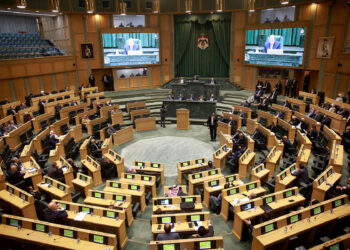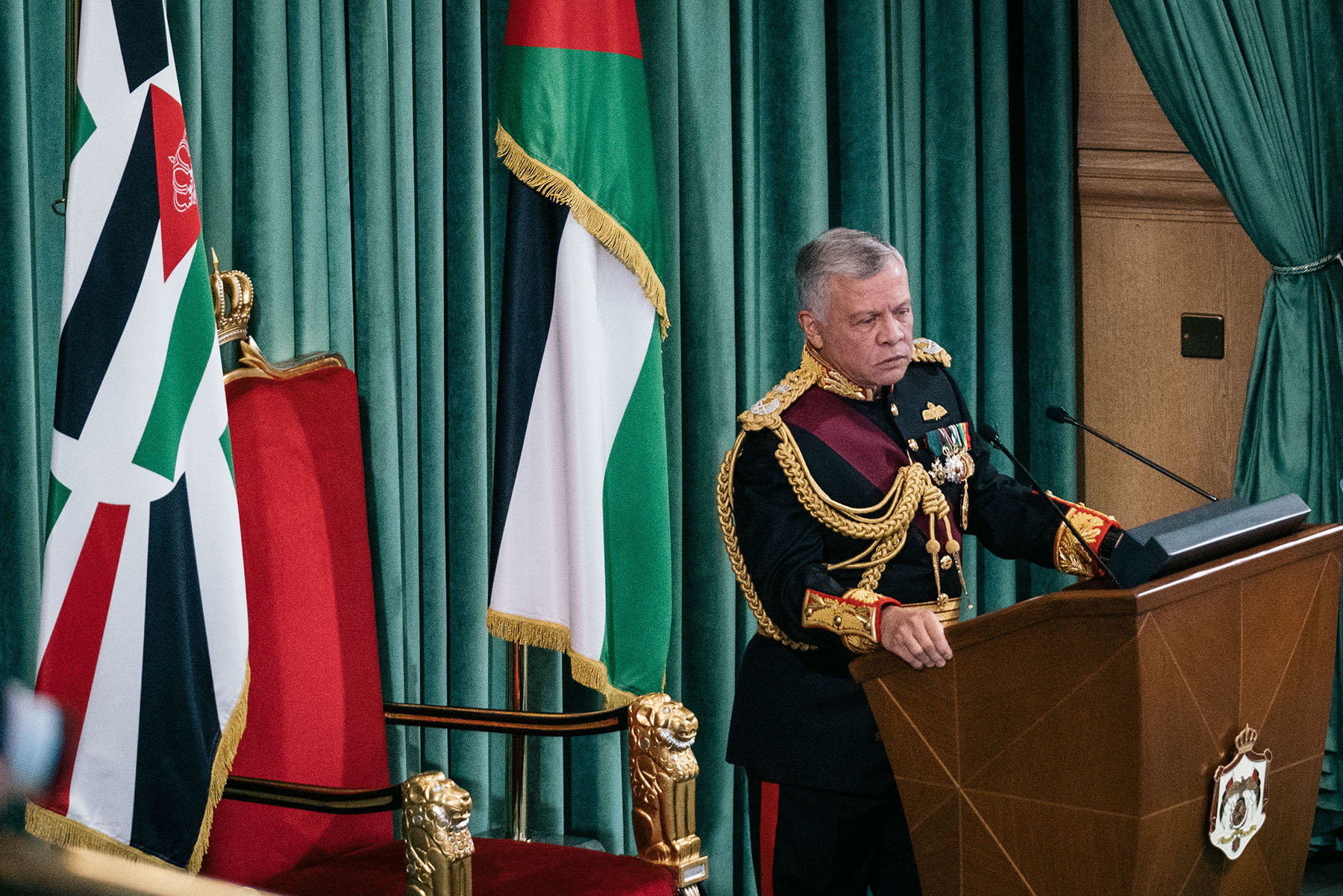Joost Hiltermann is the Program Director for the Middle East and North Africa at the International Crisis Group.
Joost Hiltermann is the Program Director for the Middle East and North Africa at the International Crisis Group.
عربی
When reports surfaced in April that senior security officials from Saudi Arabia and Iran had met in Baghdad to discuss their two countries' troubled relationship, at least three pertinent observations came to mind about the state of the cold war that has played out in the Gulf region ever since Iran's Islamic revolution in 1979. For one, the arrival of the Biden administration and its distinctly diverging Iran strategy from the Trump administration helped convince the Saudis of the need to recalculate their own approach toward Iran. For another, in pursuing talks, Saudi leaders are suggesting that diplomacy may stand a better chance of achieving their objective of containing Iran than confrontation. And finally, in this scenario, the two sides have given Iraq the chance to stand up as a facilitator for diplomacy and offer itself as a neutral venue.
This all leads to an important conclusion, as well: It is as good a time as any to restart discussions about an inclusive, region-based dialogue aimed at de-escalating tensions in the Gulf.
These tensions go back decades. The year 1979 was pivotal in producing what transpires today. It saw not only a dramatic move in Iran from secular monarchy to Shia theocratic republic, but also, following the siege of Mecca in late 1979, Saudi Arabia's own transformation from passive custodian of Islam's holiest sites to zealous global missionary of Wahhabism, an intolerant strain of Sunni Islam. These two developments in Tehran and Riyadh helped polarize the region's politics and alliances, with very little neutral ground between the two powers. The rift was primarily between two opposing political systems that evolved into struggles over geopolitical influence, but often found expression in ethnic and sectarian terms.
The Saudis view Iran as an aggressive power hell-bent on exporting its brand of Shia political Islam to Shia communities throughout the Arab world, to undermine sitting Arab regimes. They attribute to Iran hegemonic ambitions, extending even to the perception among some Saudis that it has its eyes set on imposing its religious supremacy over Mecca and Medina. They see Iran spreading its tentacles throughout the region via non-state armed proxies, from Lebanon following the 1982 Israeli invasion; to Iraq after the U.S. removed Saddam Hussein's regime and its security forces in 2003 without replacing them with a viable alternative; and to Syria, Yemen, and Bahrain in the wake of the 2011 popular uprisings and their resulting political and security vacuums.
This view is both overstated and misstated. While Iran has tried to convert its non-state allies and their followers to its notion of vilayet-e fakih—roughly translated as rule by a preeminent religious leader—it has been conspicuously ineffective. Tehran has had more success in arming and training them to play paramilitary and political roles, from Hezbollah in Lebanon, to the Popular Mobilization, or al-Hashd al-Shaabi, militias in Iraq, to the Houthis in Yemen. But its reach has been limited by these groups' distinct domestic agendas that do not always converge with Iran's regional one, and by the fact that Iran, while part of the region, is also somewhat of an outsider: large, non-Arab and seemingly menacing, like Turkey, with memories—and perhaps fresh aspirations—of all-encompassing empire. Diminished by four decades of relative isolation and international sanctions, Iran nonetheless parlayed weakness into strength, learning to rely on its own resources and resourcefulness to again become a regional powerhouse, one able to defend itself without major foreign support.
Yet even this success should not be overstated. Iran's economy is a mess and society is deeply dysfunctional. Because of its continued international isolation, Iran still cannot rise to its full potential.
In turn, Iran sees Saudi Arabia as a toothless U.S. protectorate that nonetheless threatens its security by being part of a four-decade-old American strategy of using Washington's regional allies to encircle Iran and snuff out what remains of its revolution. Iran's main preoccupation is with the U.S. military presence in the Middle East, not with Saudi Arabia or any of the other Gulf Arab states as such. But to the extent that it sees these states as marching in lockstep with U.S. diktats—hosting its troops, purchasing its sophisticated weaponry, and jacking up oil production to make oil-related sanctions on Iran bite—it views them as threats, and thus also as potential targets. Iran has made clear that if it is attacked by the U.S., it may retaliate by wreaking havoc on the economies of the Arab states across the Gulf, with their vulnerable, oil-dependent infrastructure and shipping lanes.
All the while, U.S. power projection in the region has waxed and waned, even as its enmity toward Iran has endured. Saudi Arabia and the other Gulf actors have learned not to fully trust their powerful patron. While successive administrations in Washington have continued to extend a protective strategic umbrella over these allies, they have not always done so with great equanimity or enthusiasm. President Barack Obama warned Saudi Arabia not to drag the U.S. into its own regional squabbles, yet his administration gave it a free pass in Yemen. President Donald Trump tried to enlist Saudi Arabia in his "maximum pressure" campaign against Iran—and make it foot the bill through U.S. arms purchases. The Trump administration did not rush to the Saudis' aid following a major attack in 2019 on Aramco's oil facilities—combined drone and missile strikes suspected to have been carried out by Iran—though it did ramp up the U.S. military presence in the kingdom in its aftermath, to reassure their jittery friends in Riyadh. And President Joe Biden is showing himself to be decidedly cool toward a Saudi crown prince, Mohammed bin Salman, found likely responsible for ordering the murder of a prominent Saudi dissident, Jamal Khashoggi, and who has pursued an unwinnable and costly war in Yemen (one long green-lighted and supported by successive administrations in Washington).
The change in the White House and the U.S. turn back to diplomacy under Biden, most notably in the effort to work with Iran in restoring the 2015 international deal that curbed its nuclear program, has been the main factor in persuading Riyadh to recalculate its approach toward Tehran. Having hitched its wagon to Trump's "maximum pressure" but seen it signally fail in constraining Iran, Saudi Arabia is now reckoning that its best bet lies in making nice with Iran as long as the nuclear talks progress. It feels increasingly under attack from the Houthis in Yemen, who rain missiles on Saudi territory while pushing Riyadh's Yemeni allies to the edge of military defeat. It wants to extricate itself from this war, but cannot do so without Iranian help.
What can Saudi Arabia offer Iran in return? We don't know what Saudi and Iranian security officials discussed in Baghdad, but it is conceivable that the Iranian side seeks Saudi acceptance of the nuclear deal's revival and a meaningful political role for the Houthis in a postwar Yemen.
The fact that these talks took place in Iraq is significant. Iraqi Prime Minister Mustafa al-Kadhimi is not alone in wanting to turn his country from a battleground for outside powers into a bridge between them. He is well positioned to bring that about. The result could be promising for peace and stability in a country whose internal fissures have offered the U.S., Iran, Saudi Arabia, Turkey, and others plenty of opportunity to make mischief.
All these factors now point to a chance for Gulf actors, starting with Saudi Arabia, to work toward reducing regional tensions by lowering their inflammatory rhetoric and start talking with Iran—to move from diatribes to dialogue. The greatest risk of outright confrontation comes from the lack of adequate communication between both sides of the Gulf. This can be rectified, but only if they pursue new relationships, launch discussions on matters of pressing common concern, including the damaging effects of climate change, and open new communication channels, like the one just witnessed in Baghdad—which is why it was such a welcome development.
![]()
Photo credit: A fighter loyal to Yemen's Saudi-backed government keeps watch over a valley during clashes with Houthi rebels west of the city of Taez, March 8, 2021. (Photo by Ahmad Al-Basha/AFP via Getty Images)































![Security forces loyal to the interim Syrian government stand guard at a checkpoint previously held by supporters of deposed president Bashar al-Assad, in the town of Hmeimim, in the coastal province of Latakia, on March 11, 2025. Syria's new authorities announced on March 10, the end of an operation against loyalists of deposed president Bashar al-Assad, after a war monitor reported more than 1,000 civilians killed in the worst violence since his overthrow. The Syrian Observatory for Human Rights said the overwhelming majority of the 1,068 civilians killed since March 6, were members of the Alawite minority who were executed by the security forces or allied groups. (Photo by OMAR HAJ KADOUR / AFP) / “The erroneous mention[s] appearing in the metadata of this photo by OMAR HAJ KADOUR has been modified in AFP systems in the following manner: [Hmeimim] instead of [Ayn Shiqaq]. Please immediately remove the erroneous mention[s] from all your online services and delete it (them) from your servers. If you have been authorized by AFP to distribute it (them) to third parties, please ensure that the same actions are carried out by them. Failure to promptly comply with these instructions will entail liability on your part for any continued or post notification usage. Therefore we thank you very much for all your attention and prompt action. We are sorry for the inconvenience this notification may cause and remain at your disposal for any further information you may require.”](https://dawnmena.org/wp-content/uploads/2025/04/syria-22039885951-360x180.jpg)






